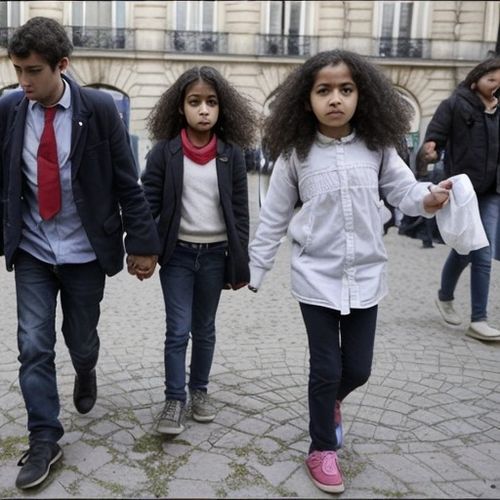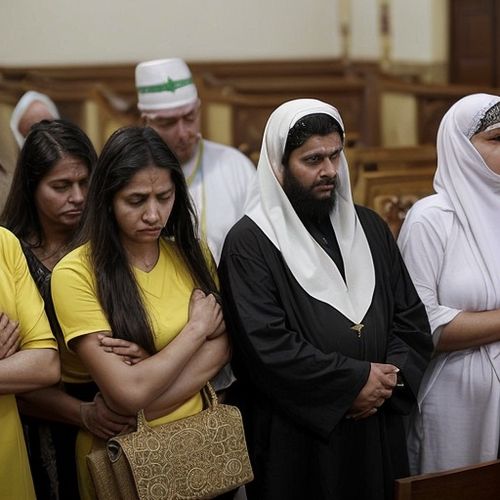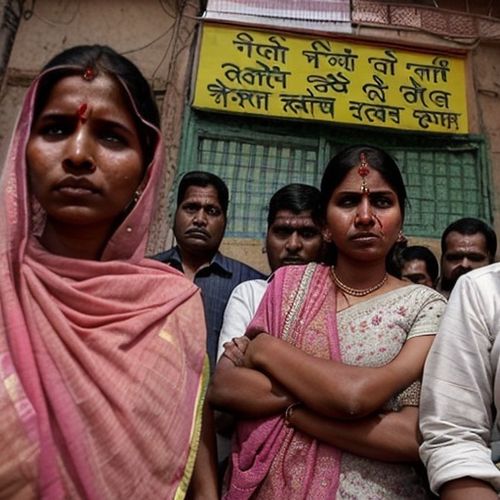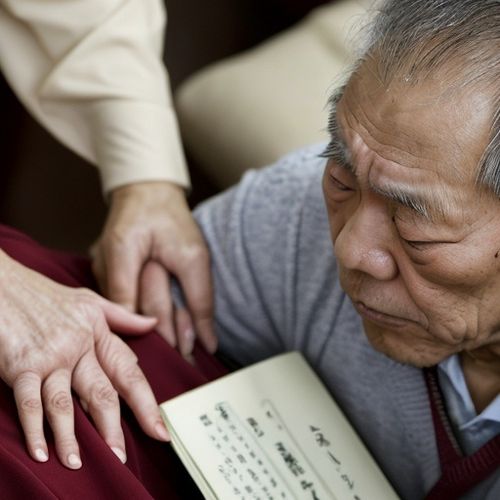In recent years, Brazil has seen a disturbing rise in cases of religiously motivated marriage scams, where individuals exploit faith and trust to manipulate their victims. These scams often target vulnerable people, particularly women, who are deeply religious and seeking companionship. The perpetrators, posing as devout followers of various religions, use spiritual rhetoric to gain their victims' confidence before disappearing with their money or assets. The phenomenon has sparked outrage and calls for stricter regulations to protect citizens from such deceit.
The modus operandi of these fraudsters is both calculated and cruel. They typically approach their victims through religious gatherings, online dating platforms, or even within their own communities. Posing as pious individuals, they express a shared faith and often claim to have divine revelations or spiritual connections that justify their quick progression into marriage. Once the relationship is established, they begin to request financial assistance for fabricated emergencies, such as medical bills, church donations, or business investments. By the time the victim realizes the deception, the scammer has usually vanished without a trace.
One of the most alarming aspects of these scams is the emotional and psychological toll on the victims. Many are left not only financially devastated but also spiritually broken, having believed they were entering a union blessed by their faith. The betrayal cuts deep, leaving some questioning their religious convictions and their ability to trust others. In a country where religion plays a central role in many people's lives, the exploitation of faith for personal gain is particularly egregious.
Authorities have struggled to combat this growing problem due to its complex nature. Unlike traditional fraud cases, religious marriage scams often lack concrete evidence, as much of the communication between the victim and the perpetrator is based on verbal promises and emotional manipulation. Additionally, some victims are reluctant to come forward, fearing stigma or judgment from their communities. Law enforcement agencies have begun collaborating with religious leaders to raise awareness and encourage victims to report these crimes, but progress has been slow.
The Brazilian government has taken some steps to address the issue, but critics argue that more needs to be done. Legislation targeting financial fraud exists, but it often fails to account for the unique dynamics of religious exploitation. Some lawmakers have proposed stricter penalties for those who use religious pretexts to commit fraud, while others advocate for better education and outreach programs to help potential victims recognize the warning signs. However, without widespread systemic changes, these scams are likely to persist.
Religious communities themselves have also been forced to confront the problem. Many churches and spiritual organizations have started implementing safeguards, such as background checks for members who quickly form relationships within the congregation. Some have even established support groups for victims, offering counseling and legal assistance. Nevertheless, the challenge remains immense, as scammers continue to adapt their tactics and target new victims.
Beyond the immediate financial losses, these scams have broader societal implications. They erode trust within religious communities and contribute to a growing sense of cynicism. For a country like Brazil, where faith has historically been a unifying force, the rise of religious marriage fraud threatens to undermine the very fabric of social cohesion. The long-term consequences could be profound, affecting not only individual lives but also the collective spirit of the nation.
Despite the grim reality, there are glimmers of hope. Stories of victims who have rebuilt their lives after falling prey to these scams serve as powerful reminders of resilience. Advocacy groups and nonprofits are working tirelessly to provide resources and support, while some religious leaders are using their platforms to denounce these crimes and call for justice. The fight against religious marriage fraud in Brazil is far from over, but with continued effort and awareness, there is potential for meaningful change.

By Eric Ward/Apr 19, 2025

By James Moore/Apr 19, 2025

By Daniel Scott/Apr 19, 2025

By George Bailey/Apr 19, 2025

By Amanda Phillips/Apr 19, 2025

By Amanda Phillips/Apr 19, 2025

By Joshua Howard/Apr 19, 2025

By Thomas Roberts/Apr 19, 2025

By Thomas Roberts/Apr 19, 2025

By Noah Bell/Apr 19, 2025

By James Moore/Apr 19, 2025

By Rebecca Stewart/Apr 19, 2025

By Noah Bell/Apr 19, 2025

By Elizabeth Taylor/Apr 19, 2025

By Benjamin Evans/Apr 19, 2025

By Laura Wilson/Apr 19, 2025

By Victoria Gonzalez/Apr 19, 2025

By Laura Wilson/Apr 19, 2025

By Laura Wilson/Apr 19, 2025

By Sophia Lewis/Apr 19, 2025